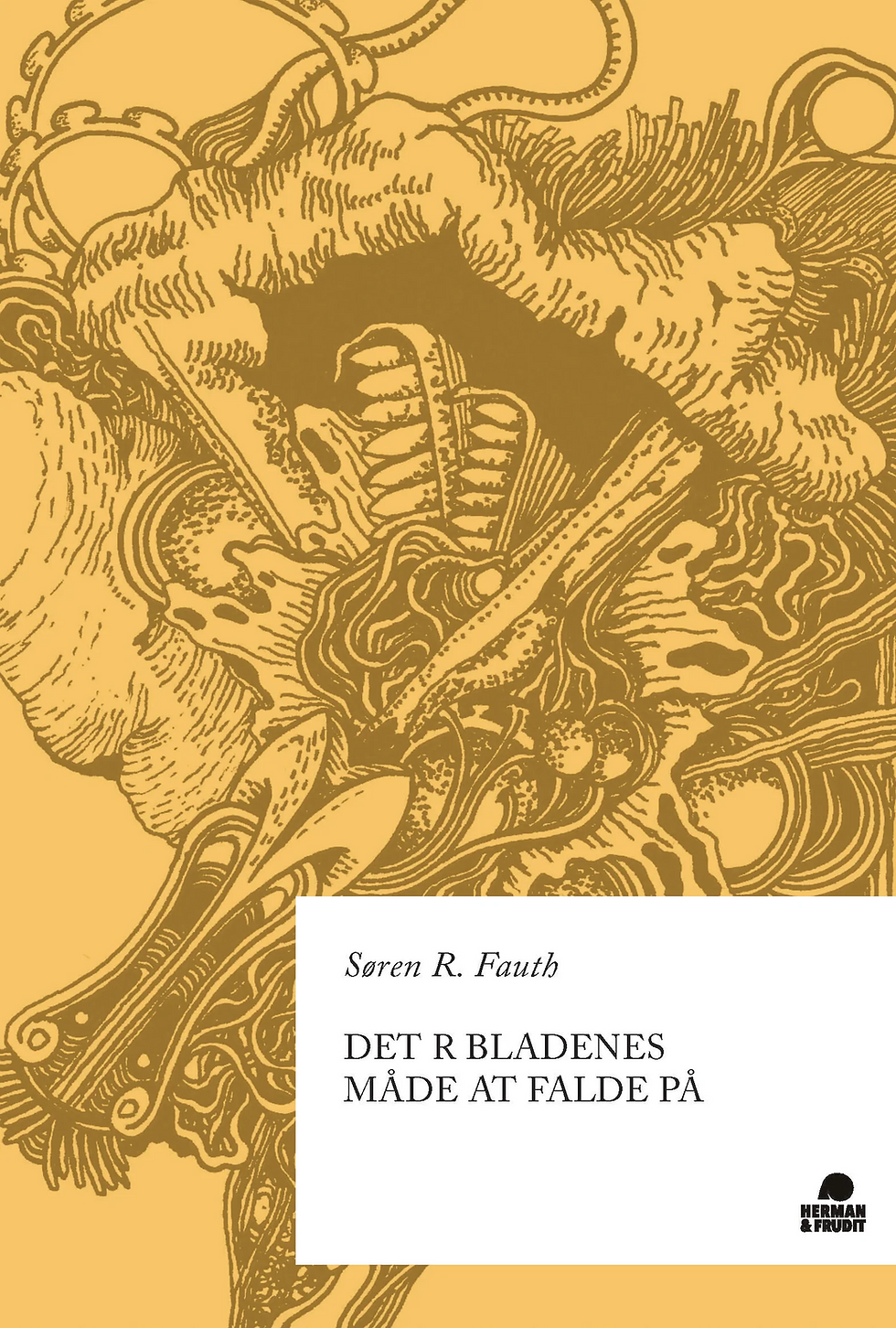Glenn Bech FARSKIBET (2021)
- Matt Travers
- Jan 9, 2022
- 3 min read
Updated: May 29, 2022

Discovered Glenn Bech at a débutante reading in Aarhus late last year. Had to get hold of a copy of ‘Farskibet’ when the host was at a loss for words to describe its genre; it’s part poetry, part novel, part memoire, part screenplay… yet it was Bech’s delivery which most enthralled: he has this way of reading dialogue which maintained the slowness of actual questioning exchanges, where these Pinteresque pauses gathered tension and didn’t just resolve themselves into dramatic implied threats of violence, but were instead true to the open-endedness of real speech and the ambivalence of our feelings when ruminating on past experience.
So I bought it. On the basis of my own reading, Bech’s ‘Farskibet’ draws together Louis-Ferdinand Céline’s unparalleled mastery of spoken language, most obviously expressed in Bech’s use of ellipsis in recounting the fragmentary memories from his earliest years (is it coincidental, Céline’s early career was as doctor, Bech’s day-job is that of a professionally educated practising therapist?), with Ronald David Laing’s ingenious, maniacal rendering of the ‘knots’ of the reasoning processes of disturbed children; those intricate double-binds of psychic life. Bech will also provide us with something like their unravelling.
Bech is especially good at relaying the experience of conflicting loyalties towards parental figures who both torment and dote on them, and he does this with a high degree of ethos: Bech’s own father committed suicide when he was five years old, and thereafter he had to deal with his mother’s partners, who were at turns psychologically and criminally abusive. Perhaps the work helps counteract the shame of having witnessed such things and having been compelled to remain silent out of fear and practical necessity; at any rate, it certainly gave this reader a feeling of solidarity. Bech also has had the challenge of dealing with his homosexuality while being raised in one of Denmark’s rougher cities, Horsens, where the wishful thinking middle class liberal ideal of ‘anything goes’ still doesn’t wash in a milieux where being touched with femininity is a clear sign of weakness. He has wrote powerfully about these experiences here: https://atlasmag.dk/kultur/b%C3%B8ger/der-hvor-jeg-kommer-fra or read aloud here: https://www.youtube.com/watch?v=JUhDkmlaRYw.
It could be tempting to reduce ‘Farskibet’ to an exploration of the ills of so-called toxic masculinity (arguably, the term ‘toxic masculinity’ obscures its historical class dynamics in favour of a vague biological tendency) but that would be to miss out on its complexity and complicity as a literary work:
" …og hvis ja, findes der så nogle, der aldrig fødes, imens nogle fødes flere gange?
…og hvis ja, hvad så med hukommelse? (jf. tidligere liv)
…og hvis ja, er vi så ikke alle hinandens eneste familie?
…og hvis ja, burde ethvert menneske (teknisk set) så ikke også være
I stand til at lære, hvad noget som helst menneske allerede kan? /
Har kunnet? / Engang vil komme til at kunne?
…og hvis ja, har vi ikke også alle både været undertrykkeren og
den undertrykte?
Far og søn? " (Farskibet, 534)
Much more to be said about the work’s central motif, ‘the father ship’, but that’s beyond me at this point. Just to conclude by saying that Bech’s work as a writer combines the highest formal originality with an authentic working class perspective: a marked contrast to the often nepotistic cottage industry of Danish literature. ‘Farskibet’ is important, vital, and empowering for all who share in this damaged life which can still recover.



Comments